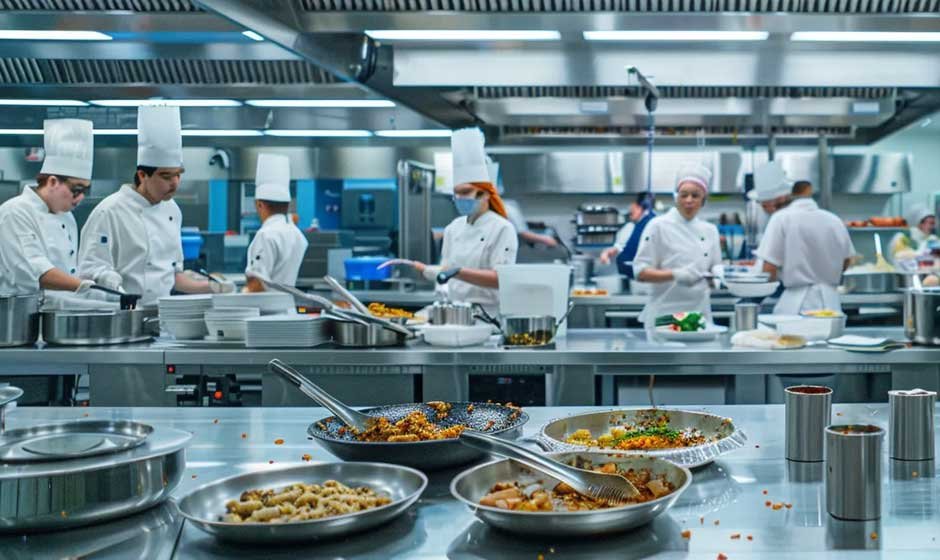Embarking on a culinary education journey is an exciting step for aspiring chefs and food enthusiasts. The path you choose can set the tone for your career, open doors to new opportunities, and cultivate your skills in the food industry. With a variety of culinary schools and programs available, making an informed decision is crucial.
Assessing Your Culinary Career Goals Before Choosing a School
Before diving into brochures and websites, it’s important to reflect on what you hope to achieve in the culinary field. Are you aiming to become an executive chef at a Michelin-starred restaurant, or do you see yourself opening a bakery? Your career goals should influence the type of program and school you select, as some institutions may specialize in certain areas of the culinary arts.
Consider the length of the programs offered and how they align with your career timeline. If you’re looking to get started quickly, a shorter diploma or certificate program might be the right fit. On the other hand, a more extensive degree program may be beneficial for those seeking a comprehensive understanding of culinary arts and business management.
Think about the skills you need to develop to achieve your culinary aspirations. For example, if innovation and food styling are your interests, seek out a school that offers cutting-edge technology and a curriculum focused on modern culinary techniques. If traditional cooking methods resonate more with your style, find a program that emphasizes classic culinary practices.
Lastly, align your educational choices with your personal values and lifestyle. If sustainability and farm-to-table practices are important to you, look for schools that incorporate these philosophies into their programs. This alignment ensures that your education is not just a set of skills learned but a true reflection of the chef you aim to become.
Understanding the Different Types of Culinary Programs Available

The culinary education landscape offers a plethora of program types, including certificates, associate degrees, bachelor’s degrees, and apprenticeships. Each type of program has distinct characteristics that cater to different learning styles and career goals. Certificate programs, for instance, typically offer concentrated training in a specific area, making them ideal for those looking to quickly enter the workforce.
Associate degree programs often combine practical kitchen skills with foundational education in subjects like nutrition, food safety, and business management. These programs balance hands-on experience with academic knowledge, preparing graduates for both cooking and administrative roles within the food industry.
Bachelor’s degree programs delve even deeper, providing a holistic education in culinary arts management. Students in these programs may engage in advanced studies of global cuisines, hospitality law, and marketing strategies, equipping them to pursue managerial positions or entrepreneurial ventures.
Apprenticeship programs allow for learning in a real-world context, connecting students directly with experienced chefs and businesses. This option is particularly beneficial for those who learn best through practical, on-the-job training and who desire to build a professional network within the industry.
Evaluating the Reputation and Accreditation of Culinary Schools
The reputation of a culinary school can be a beacon guiding your choice. Renowned institutions often attract top-notch faculty and have a network of successful alumni, which can be advantageous for job placements after graduation. Reading reviews, speaking with alumni, and attending open house events can provide insider perspectives on the schools’ teaching styles and success rates.
Accreditation is another critical factor to consider, as it ensures that the school meets certain educational standards. Attend only those culinary schools that are accredited by recognized organizations such as the American Culinary Federation (ACF) or other regional accrediting bodies. This ensures the quality of your education and can be influential when seeking employment.
Evaluating the school’s curriculum will also give you a better understanding of its focus areas and teaching methodologies. Look for programs that offer a good balance between theory and practical experience, as well as opportunities for specialization in areas that interest you. Additionally, schools with well-equipped kitchens provide a platform for students to practice their craft under realistic conditions.
Lastly, consider the networking and career support provided by the school. Strong industry connections, internship opportunities, and job fairs are valuable resources for students to kick-start their culinary careers. A school with a dedicated career services department can be a great ally in helping you navigate the employment landscape upon graduation.
Overall, selecting the right culinary school is a multifaceted decision that requires careful analysis and personal reflection. By considering the above factors, you can choose a pathway that sets the stage for a successful and fulfilling career in the culinary arts.










